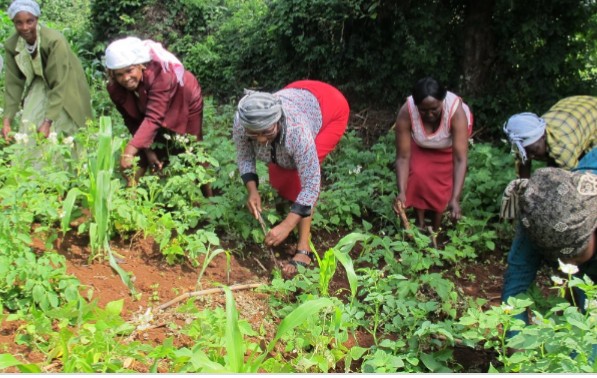|
Getting your Trinity Audio player ready…
|
By Joyce Mukucha
The Zimbabwe Gender Commission (ZGC) says rural women play a key role in global economies which include rural development, food production and poverty eradication.
ZGC said this while celebrating the 2021 edition of the International Day of Rural Women on the 15th of October which was running under the theme, “Rural Women Cultivating Good Food for All.”
The organisation described women as critical agents of change in the fight against rural poverty, hunger and malnutrition.
ZGC said, “On this yet another memorable occasion where the world celebrates rural women globally, we as the Zimbabwe Gender Commission appreciate the critical role played by women in global economies. We recognise the huge role those rural women play in producing food and building agricultural and rural development.”
The organisation highlighted that all over the world, women are responsible for food security and nutrition in most homes.
“Rural development without the active role participation of women is unimaginable. Rural women account for a greater proportion of the agricultural labour force and produce most of the food grown especially in subsistence farming. Agricultural growth in rural areas is two to four times more effective at reducing hunger and poverty than any other sector and women are playing a significant role. They produce a huge amount of food for their families and the surrounding communities,” said ZGC.
ZGC said gender-based inequalities, structural barriers and discriminatory social norms along the food production value chain hinder the attainment of food and nutritional security at the national and household levels.
Women lack access to land, financial resources, markets, education and training, gender-disaggregated data on land ownership, cash and food. If given access to these important requirements, women’s participation in the agricultural sector would boost production.
Although 86% of women in Zimbabwe depend on land for livelihood and food production for their families, they still encounter a number of challenges in food production and security.
These include lack of access to land that is predominantly owned by men and transferred intergenerationally to males. Women have less access to and control of financial resources. Where they need to apply for loans/credit, they lack the required collateral, and this limits their purchasing power of agricultural tools and inputs.
“Women lack access to markets to sell their produce. In addition, they lack marketing skills and information on current market trends and the pricing of their produce. Also, a low literacy level prevents most women from writing or preparing a business plan which is also a requirement of the bank hence they fail to do proper planning. Knowledge can help women farmers to significantly enhance their productivity and income.”
ZCG called upon the Government and other stakeholders to strengthen efforts in ensuring that the gender gap in food and agriculture is closed.
“Gender equality is essential for attaining food and nutrition security and achieving all the Sustainable Development Goals of “leaving no one behind.” This requires closing the gender gap in food and agriculture. We, therefore, call upon the Government and relevant stakeholders to ensure equal access to productive resources and services by rural women.
“They should promote the adoption of appropriate inputs and technology to free up women’s time for income-producing activities and strengthen the technical and entrepreneurial skills of women to improve their engagements in value chains.”
Promoting climate-resilient agriculture strategies, securing rural women’s rights, empowerment and well-being are important imperatives to close the existing gender gap in food and agriculture.
“There is also need for government and other stakeholders to put in place a multi-sectoral approach to development and empowerment programmes so as to improve the lives of rural women and girls as well as reviewing of the national COVID-19 response mechanisms informed by experiences and lessons learnt in addressing rural women band girl’s concerns,” added ZGC.
The Zimbabwe Gender Commission is one of the five Independent Commissions established in terms of Sections 232(c) and 245 of the Constitution of Zimbabwe and operationalised through the Zimbabwe Gender Commission Act (Chapter 10:31).
It is driven by the overall mandate of promoting, protecting and advancing gender equality as provided for in the Constitution of Zimbabwe.
